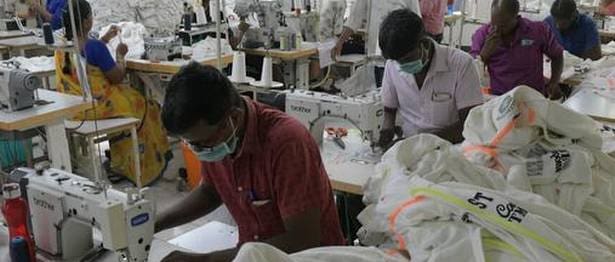The sudden spike in Covid-19 infections in India, especially in and around the textile hubs, has hurt the textile sector, albeit temporarily, at a time when the industry has been gearing up to meet strong export demand catalyzed by geopolitical factors.
Though exporters were expecting some impact from the second wave, they were confident of overcoming it due to learning from the first wave, and adequate precautionary measures were put in place.
Spike in daily cases
The second wave has, however, posed a lot of challenges for manufacturers in the textile hubs of Tirupur and Coimbatore. While Coimbatore is the second worst-hit region after Chennai, Tirupur has also seen a spike in daily new cases over the past few days.
“Tirupur has seen a complete shutdown of textile units, while export-oriented units in the outskirts and rural areas are trying to operate with skeletal staff,” says Prabhu Damodaran, Convener, Indian Texpreneurs Federation.
Each unit is adopting calibrated measures and adhering to government guidelines. Industry representatives say that units have realized the need to break the transmission of virus and are ready to undergo the short-term pain for long-term gains once key export markets see a revival.
A Sakthivel, Chairman, Apparel Export Promotion Council (AEPC), points out that while new infections in Tirupur have increased, it is not at alarming levels despite being an industrial township with about five lakh workers. But exporters have taken adequate precautions to execute some important orders.
“Thanks to the State government’s efforts, we expect the situation to improve soon. Also, our key markets — such as the US and Europe — are not under lockdown like last time and orders continue to flow from these regions,” he added.
Demand boom
Damodaran also pointed out that key consumption markets are witnessing a demand boom and the industry has communicated to the buyers that the lockdown and restrictions will be a short term one, may be for three weeks.
“We told them that we will meet their requirements as we have adequate raw material and manpower to ramp up quickly. In some product cases, we have order visibility for six months,” he added.
Damodaran said organized players have retained their migrant laborers and workers by providing them with accommodation and planning to vaccinate them at the earliest.
“I would say about 95 per cent of migrant workers are staying back. The association has also communicated to the members that this would be a short-term disruption and workers can be retained with adequate protective measures,” said Sakthivel.

